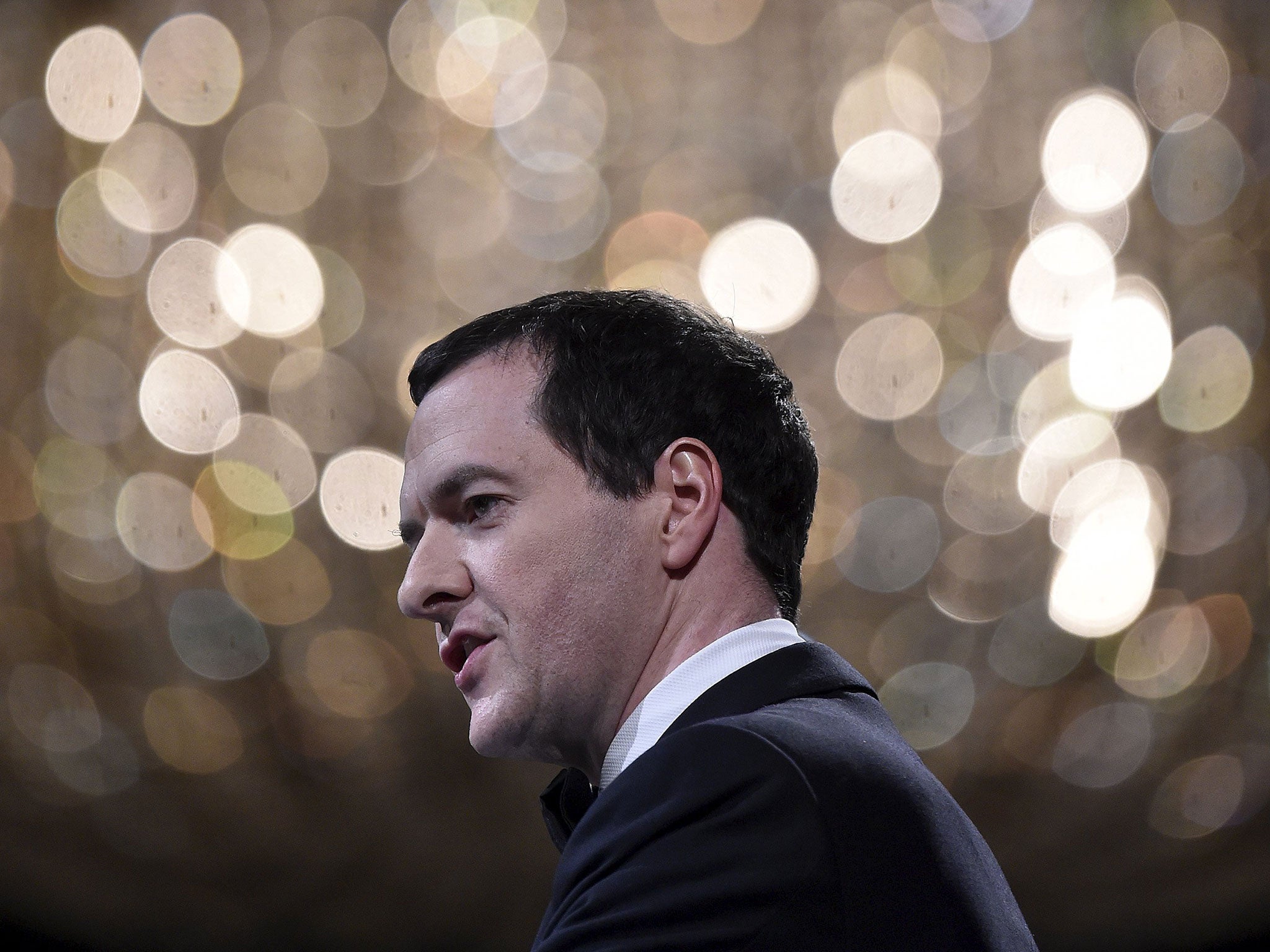Your support helps us to tell the story
From reproductive rights to climate change to Big Tech, The Independent is on the ground when the story is developing. Whether it's investigating the financials of Elon Musk's pro-Trump PAC or producing our latest documentary, 'The A Word', which shines a light on the American women fighting for reproductive rights, we know how important it is to parse out the facts from the messaging.
At such a critical moment in US history, we need reporters on the ground. Your donation allows us to keep sending journalists to speak to both sides of the story.
The Independent is trusted by Americans across the entire political spectrum. And unlike many other quality news outlets, we choose not to lock Americans out of our reporting and analysis with paywalls. We believe quality journalism should be available to everyone, paid for by those who can afford it.
Your support makes all the difference.George Osborne wants to make a new law that forces future governments to run budget surpluses when the economy is growing.
A 'surplus' means that the Government does not spend more money than it receives in tax revenues each year. It is the opposite of a deficit.
But how common have budget surpluses been in the past? Since Britain abandoned the post-war consensus chancellors of all parties have shied away from running them.
The chart below shows the UK's current budget surpluses for each year since the Second World War, according to the Office for National Statistics.
Bars above the line show surpluses, bars below the line show deficits.
Under Margaret Thatcher there was a big shift away from balanced budgets which was never reversed.
There are several reasons this might have been the case.
Firstly, after WWII Britain had a very high stock of debt, which needed to be paid down. Once this had been reduced it may have been reasonable to return to budget deficits.
Secondly, unemployment was significantly higher after 1979 than during the post-war period, meaning spending on benefits ballooned. This would have increased the deficit.
The Government also privatised assets, some of which could have yielded annual contributions to the treasury, in exchange for one-time windfall payments. This means less public income and higher deficits
Trend economic growth has also been lower since Margaret Thatcher's economic reforms, meaning lower tax receipts than otherwise.
Budget deficits are common across the world and don't necessarily have to be a problem.
But whatever the cause, budget surpluses have been the exception rather than the rule since Britain's economy was dominated by free market liberalism.
Whether Mr Osborne's new law sticks will remain to be seen.

Join our commenting forum
Join thought-provoking conversations, follow other Independent readers and see their replies
Comments